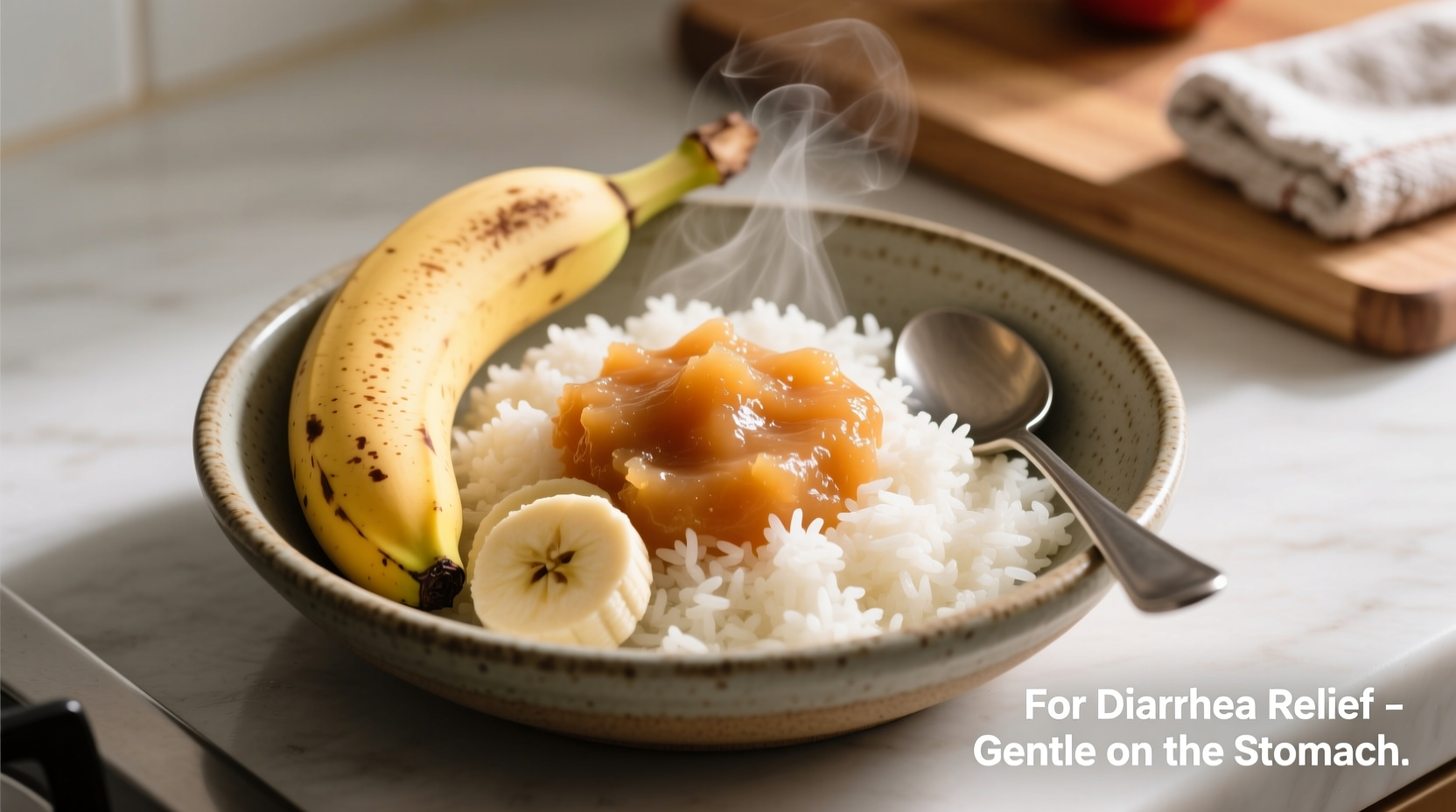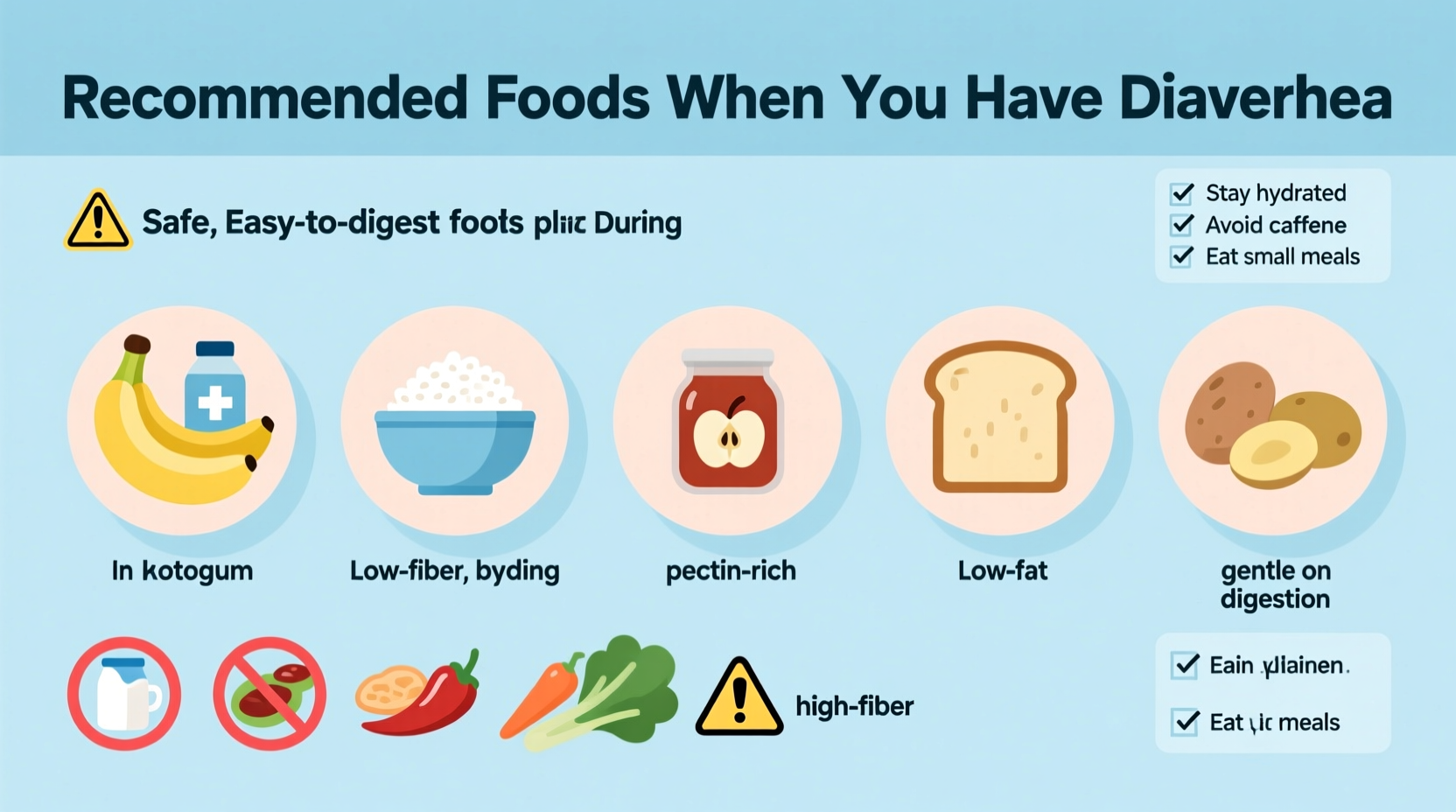
Your Step-by-Step Guide to Managing Diarrhea Through Diet
Diarrhea affects millions of people each year, causing discomfort and potential dehydration. The right dietary choices can significantly shorten your recovery time and reduce symptoms. This guide provides medically-backed recommendations based on current clinical guidelines from leading health authorities.
Understanding Your Body's Needs During Diarrhea
When diarrhea strikes, your digestive system becomes irritated and loses its ability to properly absorb fluids and nutrients. The primary goals during this time are:
- Preventing dehydration (the most immediate concern)
- Allowing your digestive tract to rest and heal
- Gradually reintroducing nutrients without aggravating symptoms
According to the Centers for Disease Control and Prevention, adults should drink at least 1 cup (240 mL) of oral rehydration solution for each loose stool, while children need precise amounts based on age and weight.
Diarrhea Recovery Timeline: What to Eat When
Your dietary approach should evolve as your symptoms improve. Here's a medically recommended timeline for reintroducing foods:
| Time Since Symptoms Began | Recommended Foods & Drinks | Foods to Avoid |
|---|---|---|
| First 4-12 hours | Clear fluids, oral rehydration solutions, weak tea | All solid foods, caffeine, alcohol |
| 12-24 hours | BRAT foods (bananas, rice, applesauce, toast), boiled potatoes | Dairy, fatty foods, spicy foods |
| 24-48 hours | Lean proteins (chicken, turkey), cooked vegetables, probiotic yogurt | Raw vegetables, high-fiber foods |
| 48+ hours | Gradual return to normal diet with continued probiotics | Greasy foods, excessive sugar |
The Science Behind the BRAT Diet and Beyond
The traditional BRAT diet (bananas, rice, applesauce, toast) remains recommended by healthcare providers for good reason. Each component serves a specific purpose in your recovery:
- Bananas: Rich in potassium, which is depleted during diarrhea, and contain pectin that helps firm stools
- White rice: Low-fiber and binding, helping to reduce stool frequency
- Applesauce: Provides pectin without the fiber of raw apples that could irritate your system
- Toast: Easy to digest and helps absorb excess fluid in the digestive tract
However, medical experts now recommend supplementing the BRAT diet with additional nutrients. According to research published in the National Institute of Diabetes and Digestive and Kidney Diseases, prolonged use of the BRAT diet alone lacks sufficient protein, fat, and other essential nutrients needed for complete recovery.
Hydration: Your Most Critical Priority
Dehydration poses the greatest risk during diarrhea episodes. The World Health Organization recommends oral rehydration solutions (ORS) containing specific ratios of salts and sugars to optimize fluid absorption.
Effective hydration options include:
- Commercial oral rehydration solutions (like Pedialyte)
- Homemade ORS: 6 level teaspoons sugar + 1/2 level teaspoon salt dissolved in 1 liter of clean water
- Clear broths and bouillon
- Weak herbal teas (chamomile, ginger)
Avoid sports drinks as primary rehydration sources—they contain too much sugar and not enough electrolytes for optimal recovery from diarrhea.
Foods That Accelerate Your Recovery
Beyond the BRAT diet, certain foods can help you recover more quickly:
- Probiotic-rich foods: Yogurt with live cultures, kefir, and fermented foods help restore healthy gut bacteria. A Mayo Clinic study found probiotics can reduce the duration of infectious diarrhea by about one day.
- Boiled potatoes: Provide easily digestible carbohydrates without irritating your system
- Oatmeal: Contains soluble fiber that absorbs water in the digestive tract
- Lean proteins: Baked or boiled chicken (without skin) provides necessary protein once you're past the initial phase
Foods and Drinks to Avoid Completely
Certain foods can worsen diarrhea or delay recovery. Steer clear of these until you're fully recovered:
- Dairy products (except probiotic yogurt): Lactose intolerance often develops temporarily during diarrhea
- Fatty or fried foods: Difficult to digest and stimulate bowel activity
- High-fiber foods: Raw fruits and vegetables, whole grains (initially)
- Caffeine and alcohol: Both act as diuretics, increasing fluid loss
- Artificial sweeteners: Sorbitol and mannitol can have a laxative effect
- Spicy foods: Irritate the digestive tract lining
When to Seek Medical Attention
Most cases of acute diarrhea resolve within 1-2 days with proper dietary management. However, contact a healthcare provider if you experience:
- Diarrhea lasting more than 2 days (adults) or 24 hours (children)
- Signs of severe dehydration (extreme thirst, dry mouth, little or no urination, severe weakness)
- Fever above 102°F (39°C)
- Stools containing blood or pus
- Sudden, severe abdominal pain
Infants, young children, and older adults require closer monitoring as they dehydrate more quickly. The American Academy of Pediatrics emphasizes that oral rehydration therapy is the cornerstone of treatment for acute gastroenteritis in children.
Preventing Future Episodes
Once recovered, consider these strategies to reduce future occurrences:
- Incorporate probiotic foods regularly into your diet
- Practice proper food handling and preparation techniques
- Stay up to date on vaccinations that prevent certain causes of diarrhea
- Be cautious with food and water when traveling to areas with different sanitation standards











 浙公网安备
33010002000092号
浙公网安备
33010002000092号 浙B2-20120091-4
浙B2-20120091-4